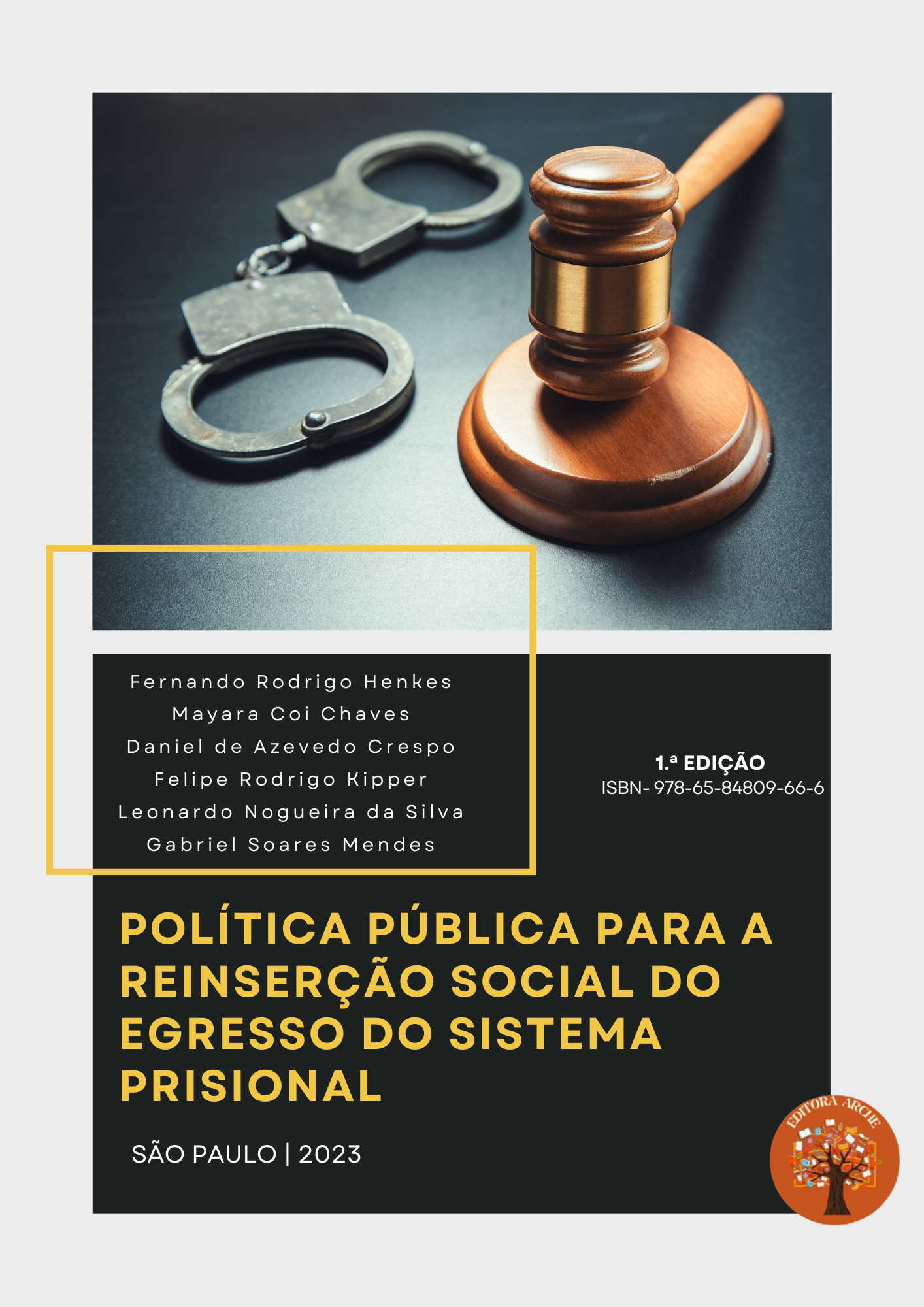PUBLIC POLICY FOR THE SOCIAL REINSERTION OF THROWERS FROM THE PRISON SYSTEM
Keywords:
Public Security. Prison System. Crisis.Abstract
The exhibition that follows will be about the book "Public Policy for the Social Reintegration of Egress from the Brazilian Prison System". Written by a group of specialists in the field, the work provides a profound analysis of the problems of the Brazilian prison system and public policies aimed at the social reintegration of former prisoners.
The Brazilian prison system is known to face a series of challenges and structural problems that affect the quality of life of detainees and the effectiveness of resocialization of prisoners.
One of the main problems of the Brazilian prison system is the overcrowding of prisons, which often house a number of prisoners well above the stipulated capacity. This results in unhealthy and degrading conditions for detainees, as well as increasing violence and criminality within prisons.
In addition, the Brazilian prison system is marked by a series of human rights violations, including torture, ill-treatment, inhumane conditions of confinement and lack of access to basic services such as health and education.
Another challenge faced by the Brazilian prison system is the lack of investment in prisoner rehabilitation programs. Many detainees do not have access to educational, professional or work activities, which makes it difficult for them to reintegrate into society after release.
Furthermore, the Brazilian prison system has a high rate of recidivism, that is, many ex-prisoners end up returning to crime after leaving prison. This can be attributed to a number of factors, including a lack of job opportunities and social stigmatization.
Faced with these problems, the Brazilian prison system needs a series of reforms and improvements to guarantee the dignity and rights of prisoners, as well as to promote their resocialization and reintegration into society. This includes investments in education, labor and social assistance programs, as well as measures to reduce overcrowding and violence within prisons.
The book goes on to discuss the context of the Brazilian prison system, highlighting its main problems, such as overcrowding, violence and precarious living conditions for inmates. Then, the authors present a review of the literature on public policies for social reintegration, seeking to identify the best practices adopted in other countries and the specific challenges of the Brazilian context.
Based on this literature review, the book proposes a series of recommendations for the creation of more effective public policies for social reintegration, ranging from the elaboration of individualized reintegration plans to the development of professional training programs and actions of psychological and psychological support. emotional.
The book also brings concrete examples of programs and projects that have been successful in the social reintegration of former prisoners in different parts of the country, showing that it is possible to change the reality of the Brazilian prison system with well-planned and implemented public policies.
In short, "Public Policy for the Social Reintegration of Egress from the Brazilian Prison System" is a fundamental work for all those interested in understanding and proposing solutions to the problems of the Brazilian prison system. With a multidisciplinary and evidence-based approach, the book offers a clear and objective view on the subject, bringing important reflections for building a more just and supportive country.
Downloads

Downloads
Published
How to Cite
License
Atribuição CC BY
